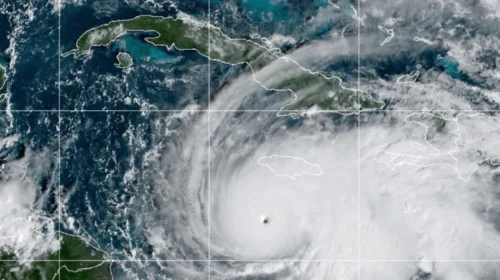Carolyn Cooper, Contributor, The Jamaica Gleaner
In response to last week’s column ‘Passive resistance at UWI, Mona’, a disdainful reader who goes by the name of ‘Pauline Principle’ took a rather unprincipled position: “I am shocked that in these hard times, scarce resources are being squandered on a reggae poetry class that will bring zero value to the job market. UWI needs to review their courses before they become irrelevant. Those who want a reggae poetry class should be allowed to do this at a community centre or at an evening course but not with the aid of taxpayers’ dollars.”
Ms Principle does not appear to understand the principle that knowledge of one’s own history and culture has intrinsic value. And she seems to conceive the job market in rather limited terms. It’s singular, not plural. The diversity of opportunities in the creative/cultural industries completely escapes her. Ms Principle clearly has a very old-fashioned view of culture. It’s something you do as a hobby. Culture couldn’t possibly be serious business.
Five years ago, the Reggae Studies Unit at the University of the West Indies, Mona, introduced an undergraduate degree programme in entertainment and cultural enterprise management (ECEM). It was the brainchild of Kam-Au Amen, the very first graduate in cultural studies at UWI. As coordinator of the Reggae Studies Unit, I negotiated for institutional support to get the programme approved.
The ECEM degree is now the second most popular one in the Faculty of Humanities and Education, right behind Media and Communication. Unlike Ms Principle, enterprising students know that they can design jobs for themselves in the creative/cultural industries. They don’t have to sit and wait to see what the job market may or may not throw their way.
Humanities serve no purpose?
It’s feedback like Ms Principle’s that makes me wonder if I should really be spending time and energy week after week writing this column. Instead, I could be working on another book (on reggae) that would be appreciated by those of us who value intellectual enquiry in the humanities. All the same, I have to admit that supportive readers usually take up the fight against my detractors with great passion. I don’t have to get into the fray.
‘Jacandood’ made an excellent point: “Pauline, I am wondering why you choose to undermine the value of the Reggae Poetry class. I bet you don’t feel the same way about Shakespeare being taught at the university.” ‘Jacandood’ knows that courses in the humanities, such as music and art, are usually required in many undergraduate degree programmes. As he put it, “The purpose of tertiary education is to mould rounded individuals.”
Carlton Reynolds, who thoroughly enjoys abusing me, couldn’t resist counter-attacking ‘Jacandood’: “These ‘humanities’ are reserved for people who want to make up credits … usually serves no other purpose … you dare to compare Shakespeare to those reggae lyricists! If Prof is using the reggae lyrics to teach how not to write, then that would be a good thing!”
All I could do was laugh. If only Mr Reynolds knew! Shakespeare, in his time, would not have been on the curriculum of any self-respecting university in England. Latin, not English, was the language of instruction. Shakespeare’s plays were not written for academics but for fun. Full of sex and violence, the plays had mass appeal; just like the lyrics of our dancehall DJs. Translated into modern English, the ‘vulgar’ language of many of Shakespeare’s plays wouldn’t make it past the censors at our Broadcasting Commission.
Contempt for our own culture is at the root of our collective failure to engage in serious academic work on reggae. Most of the influential books on reggae have been written by non-Jamaicans. The author of one of the textbooks for my Reggae Poetry course is Swami Anand Prahlad, a professor of English at the University of Missouri. It’s called Reggae Wisdom: Proverbs in Jamaican Music.
first generation of freeborn
Don’t be fooled by his name as I was. Professor Prahlad is African-American. His great-grandmother was among the first generation of freeborn blacks. He fell in love with the proverbs he was taught as a child. Eventually, he found his way to Jamaican culture. Making connections across the African diaspora is a recurring theme in his scholarly work.
Most of the films and documentaries on reggae and dancehall are also produced by non-Jamaicans. They see value where we don’t. Last Thursday, Liberty Hall hosted a panel discussion for a feature documentary, Journey to Jah by two German filmmakers, No’l Dernesch and Moritz Springer. The main speakers were the German reggae singer Gentleman; the Italian reggae singer Alborosie, who made sure to tell the lively audience that he has a Jamaican passport; and Terry Lynn, a brilliant poet and techno reggae singer from Waterhouse, who has made it big in Europe.
Each artiste told an arresting story of how they crossed cultural borders to find their creative inspiration. For me, the most powerful speaker was Terry Lynn. Rejecting the role of sex symbol, she made the decision early in her career to not be trapped in stereotypes. Even though she loves dancehall, she didn’t want to be stuck on the same ‘riddim’ every aspiring DJ has to ride. So she liberated herself to explore the techno scene. The title track of her first album, Kingstonlogic, is a brilliant take on Daft Punk’s Technologic.
All the same, things are picking up for ‘local’ writing on reggae. The Calabash International Literary Festival is on this weekend, branded Jubilation! 50. It’s still a secret if the festival is back for good. The opening session on Friday night, ‘Music is My Passion’, features four authors of books on reggae. Two are Jamaican, one has Jamaican roots, the other is an adopted Jamaican. Reggae scholarship is coming back home.
Carolyn Cooper is a professor of literary and cultural studies at the University of the West Indies, Mona. Visit her bilingual blog at http://carolynjoycooper.wordpress.com
ARTICLE SOURCE: Jamaica Gleaner, May 20, 2012
Author Profile
- ... refers to representatives of entities such as embassies, entertainment industry, creative force whose submitted work gets published on this site. Views expressed here may not necessarily represent those of the owner of this site, but are being published in the interest of the wider public. Link me here
Latest entries
 AdvertorialJanuary 1, 2026Daily reads on www.antheamcgibbon.com as @ 1 January 2026
AdvertorialJanuary 1, 2026Daily reads on www.antheamcgibbon.com as @ 1 January 2026 Raw and DirectDecember 21, 2025Use that rare energy in you
Raw and DirectDecember 21, 2025Use that rare energy in you General categoryDecember 1, 2025Daily reads on antheamcgibbon.com as @ December 1, 2025
General categoryDecember 1, 2025Daily reads on antheamcgibbon.com as @ December 1, 2025 Raw and DirectNovember 30, 2025Time to grow AFTER MELISSA 2025
Raw and DirectNovember 30, 2025Time to grow AFTER MELISSA 2025


